- Home
- Parents
- Online Safety
Online Safety
Being Safe Online
Online safety is an integral part of children’s education in today’s digital world and is embedded in their learning at school. We also want to help our parents/carers and children improve their own understanding of E-safety issues so they can learn to use the internet and all digital media in a safe and secure way.
At Home
As a parent you'll know how important the internet is to children - they use it to learn, play, socialise and express themselves. It's a highly creative place of amazing opportunities. But the technology children use every day can seem a bit daunting and you might worry about the risks your child can face online - such as bullying, contact from strangers or the possibility of them seeing illegal or inappropriate content.
To start to protect your child at home it’s important to engage with them about the internet. Find some conversation starter ideas from:
At School
As part of your child’s curriculum and the development of computer skills, we provide access to the internet only in teacher supervised lessons. We strongly believe that the use of the web and email is hugely worthwhile and an essential tool for children as they grow up in the modern world. But because there are always concerns about children having access to undesirable materials, we have taken positive steps to deal with this risk in school. Our school internet access provider operates a filtering system that restricts access to inappropriate materials.
At the start of the school year, each class discusses how we can all stay safe online and the dangers we may face on the internet. Throughout the year, our Computing Curriculum delivers online safety. As well as this, school host an online safety day to reinforce how to keep safe online.
Parent Resources
To try and help parents with the fast moving and changing world of internet and social media we've suggested a few internet sites on the right of this page which are fantastic resources, They contain information on different types of social media and how to help keep children safe.
Childnet Parents and Carers Leaflet
NSPCC provide comprehensive advice as well as a helpline service if you need advice on keeping your child safe online.
Thinkuknow is an education programme from CEOP, which protects children both online and offline.
Social Networking Safeguarding
NSPCC’s Net Aware provides guidance to parents on social networking sites, apps and games which children use and how to keep their children safe in today’s digital world. It can be accessed via https://www.net-aware.org.uk/. Given that many such new sites constantly appear, this website can be quite useful to stay up to date and keep children safe.
Please find Parent's Guide to Whatsapp and TikTok below.
Acceptable Use Agreements
Digital technologies have become integral to the lives of children and young people, both within schools and outside school. These technologies are powerful tools, which open up new opportunities for everyone. These technologies can stimulate discussion, promote creativity and stimulate awareness of context to promote effective learning. Young people should have an entitlement to safe internet access at all times.
This Acceptable Use Agreement is intended to ensure:
That young people will be responsible users and stay safe while using the internet and other digital technologies for educational, personal and recreational use.
That school systems and users are protected from accidental or deliberate misuse that could put the security of the systems and will have good access to digital technologies to enhance their learning and will, in return, expect the students / pupils to agree to be responsible users.
AUP's are completed upon pupil's admission, but you can request another one from the school office.


